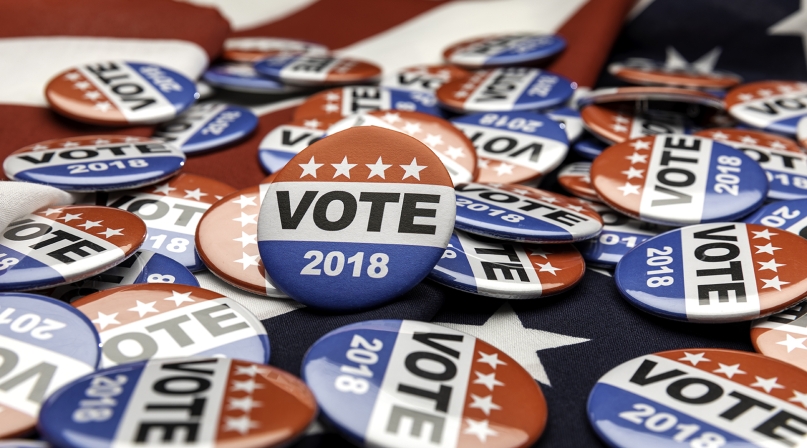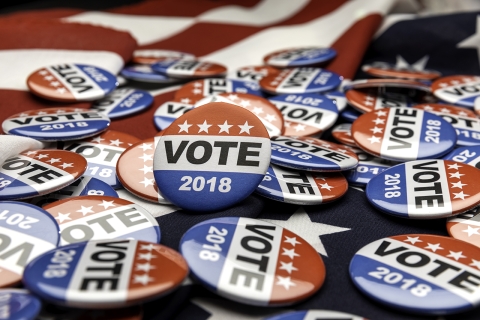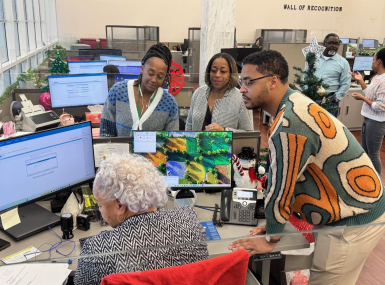Counties eye measures on midterm ballots

Key Takeaways
While national attention focuses on U.S. House and Senate contests, dozens of ballot measures will hold possible changes for county government, particularly with regard to Medicaid expansion and affordable housing in California.
Six states will put to voters the option to expand or to extend expansions of Medicaid under the Affordable Care Act. Idaho, Nebraska and Utah will ask voters whether their Medicaid programs should expand and Montana will ask voters if its Medicaid expansion should continue beyond its 2019 sunset date.
Medicaid helps counties provide safety-net services to residents who can’t afford medical care and relieves the strain on county budgets. In Georgia, voters will decide on expanding Medicaid eligibility to those under 65, whose income is 133 percent of the federal poverty level or below and who are not eligible for other state insurance coverage.
California is home to one of the most expensive housing markets in the country, especially throughout the San Francisco Bay area, and Proposition 10 would allow counties to do more to promote affordable housing.
Passage of Proposition 10 would repeal the Costa-Hawkins Rental Housing Act, a 23-year-old statute that limits local governments’ ability to impose rent control and exempts single-family homes and condos from rent control. The measure would also not prevent a landlord from realizing a fair rate of return.
At least part of the cost of housing has contributed to the state’s population of homeless people, and Proposition 2 would allow the state to use $2 billion in bonds to supply homelessness prevention programming.
Proposition 6, however, would repeal the 2017 gas and diesel tax and require a ballot measure to increase those taxes in the future, gutting a significant source of funding for county road and infrastructure projects. The 2018 California Statewide Local Streets and Roads Needs Assessment Report found the repeal would add at least $12 billion, before inflation, to the funding shortfall for the local transportation network over the next 10 years.
Also in gas tax news, Utahns will vote on a non-binding opinion about raising their gas tax by 10 cents.
Arizona counties are facing a prohibition enacting or increasing taxes on services after the end of the year. Proposition 126 covers a wide variety of services, including fitness activities, pet grooming, financial services and healthcare.
Counties rely on the state’s Transaction Privilege Tax for shared revenue, which currently covers only the sale of tangible goods, but passage of Proposition 126 would eliminate policy options for the Legislature by protecting the exemptions in the Constitution, leaving lawmakers unable to expand the tax base to includes services and thus lower the sales tax rate for everyone. That will prevent lawmakers from expanding the base to provide additional funding for mandated functions like education and public safety.
“If passed, the county tax base will be boxed in, limited to retail goods and property,” said Jen Marson, executive director of the Arizona Association of Counties. “Eventually this could put pressure on the rate to secure necessary funding. Personally, I think it is a poor strategy to set tax code policy in the Constitution not knowing what financial challenges may face the state in the future.”
In Florida, Amendment 10 would prohibit counties from abolishing certain local offices — sheriff, tax collector, property appraiser, supervisor of elections, and clerk of the circuit court — and requiring elections for these offices.
The Florida Association of Counties opposes that amendment.
“There’s concern about how the amendment is being presented to the voter,” Executive Director Ginger Delegal said. “When you look at Amendment 10, it’s bundled together with other proposals that are not connected to it and there’s widespread concern over voter confusion and voters not understanding what’s at stake. Such an important civic issue should not be bundled with provisions that the voter is likely to want.”
The association also opposes two measures dealing with property taxes.
Amendment 1 would provide another $25,000 in homestead tax exemption for properties assessed at $100,000 or more, which Delagel said was simply a tax shift.
“While homeowners may in some circumstances receive some benefits, there are other property owners who will absorb the tax shift,” Delegal said. “This is not a property tax relief for all my any stretch of the imagination. They may have second homes or own small businesses and they might end up with a higher tax bill in the end.”
Amendment 2 would make permanent a cap on property tax assessment increases for non-homestead property.
The association is neutral on Amendment 12, which would prohibit public officials from lobbying for compensation for six years after leaving office.
“We don’t see that as much on the county level,” Delagal said.
Louisiana’s Amendment 1 would prohibit convicted felons, unless pardoned, from seeking or holding a public office until five years after the completion of their sentences. Amendment 3 would allow parishes to loan or exchange equipment and personnel through written agreements. Amendment 6 would require that tax increases from reappraisals resulting in a property’s value increasing more than 50 percent be phased in over the course of four years. Parishes would also not be allowed to adjust the tax rate to make up for lost revenue from the phase-in requirement.
New Hampshire’s Question 1 add to state constitution the right of a taxpayer to take legal action against the state or local government to declare that the government spent, or has approved spending, public funds in violation of a law, ordinance or constitutional provision.
New Hampshire Association of Counties Executive Director Ron White said the measure isn’t of great concern to the association.
Voting access
Florida’s Amendment 4 would automatically restore the right to vote for people with prior felony convictions once their sentences — including prison, parole and probation — are complete.
Maryland Question 2 would amend the state constitution to authorize the Maryland Legislature to enact a process for registering qualified individuals to vote at a precinct polling place on election day
Michigan’s Proposal 3 would add several voting policies to the constitution including automatic voter registration, same-day voter registration and no-excuse absentee voting during the 40 days before an election. Eligible people would have 15 days before an election to register by mail, cutting down from the current 30 days.
Smaller scale measures
Individual counties have some ballot measures that could have local and state implications.
Seventeen Wisconsin counties have referendums on the “dark store” tax loophole, giving state lawmakers a message about closing a loophole that allows big-box retailers to lower their property taxes by millions, stiffing counties.
A 2008 state Supreme Court decision limited how assessors could use lease payments in calculating property tax assessments and retailers have argued that they have been assessed based on the buildings’ full business use, rather than the actual value of the brick-and-mortar structures.
Voters in New York’s Hudson Valley will decide on giving the Ulster County Redistricting Committee final say over the creation and adoption of a redistricting map, which would aim to eliminate gerrymandering. The county’s vote to adopt a charter government established an independent redistricting committee, but the County Legislature demanded a vote on the plan.
The referendum would eliminate the provision for a permissive referendum, giving the Redistricting Commission the final say over the redistricting map.
And, 12 North Dakota counties will vote on an official county newspaper in which to advertise proceedings and public notices required by law.

Attachments
Related News

Pa. counties consider furloughs, loans as state budget lapse continues
For the third time since 2015, an unresolved state budget dispute that has dragged on for several months has left counties without the revenue that they depend on to provide critical services.

County library cooks up interest with chef series
Orange County, Calif.'s library system drew in new patrons by introducing its offerings through a cooking video series.

